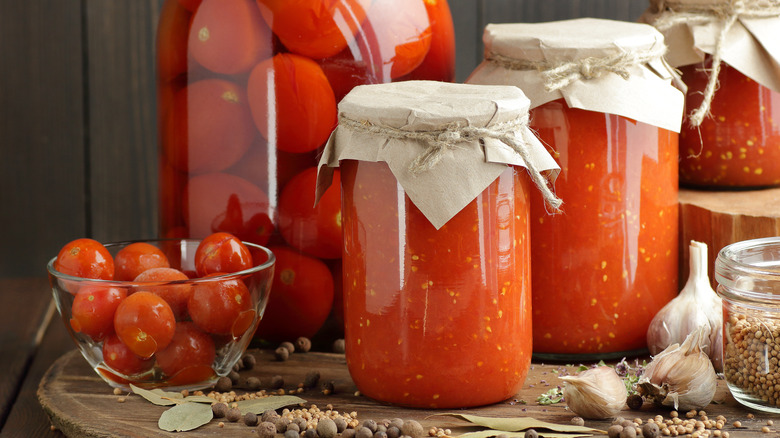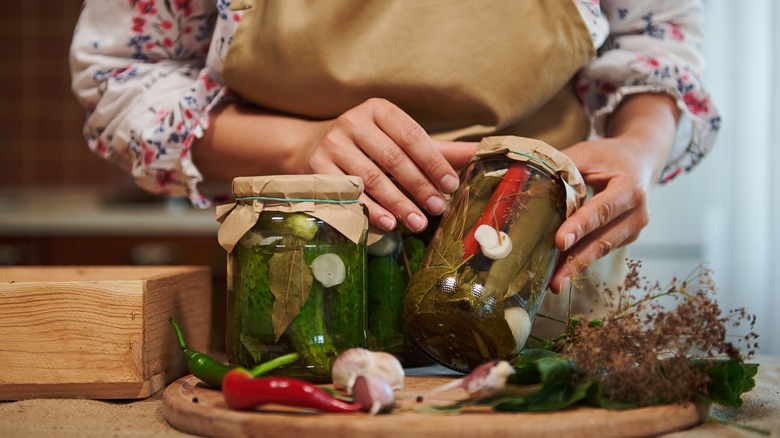Why Alkaline Foods Should Never Be Canned In A Boiling Water Bath
Canning is a safe way to preserve food. The process uses heat to inactivate enzymes and kill microorganisms that would otherwise cause your food to spoil. It also creates a vacuum seal to prevent recontamination. According to the USDA, home-canned foods are good for up to one year.
The primary thing to be aware of when canning is the U.S. Food and Drug Administration classifies all foods (other than alcoholic beverages) with a pH that is higher than 4.6 as low-acid (or alkaline) foods. You must take extra precautions when canning alkaline foods such as vegetables because the low acid content supports the growth of Clostridium botulinum spores, the bacterium that can cause botulism. The Penn State Extension explains that under the right conditions, this can produce a deadly toxin. While the typical boiling water bath method is suitable for canning high-acid foods, it is not a safe technique to use when canning low-acid foods.
A boiling water bath is not a safe method for canning low-acid foods
The World Health Organization states that Clostridium botulinum is an anaerobic bacterium. This is a fancy way of saying it can grow (and thrive) in environments where there is no oxygen, such as in the vacuum created during the canning process. However, Clostridium botulinum cannot form when the pH is lower than 4.6, which is why the FDA designates that as the dividing point between acidic and alkaline foods.
To kill Clostridium botulinum spores, you must increase the temperature to over 240 degrees. The problem with water is when it reaches 212 degrees, it turns from a liquid to a vapor and evaporates. Under normal conditions, it will never reach a temperature greater than 212 degrees. That means water will never be hot enough to kill clostridium botulinum spores.
However, when you increase the surrounding air pressure, water vapor cannot escape as easily. This means the water must reach a higher temperature to boil. Thanks to this bit of science, alkaline foods can be safely canned in a pressure canner (not a pressure cooker), which will allow the water to reach a temperature of 240 degrees or higher.

